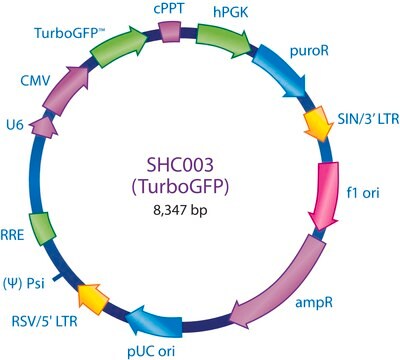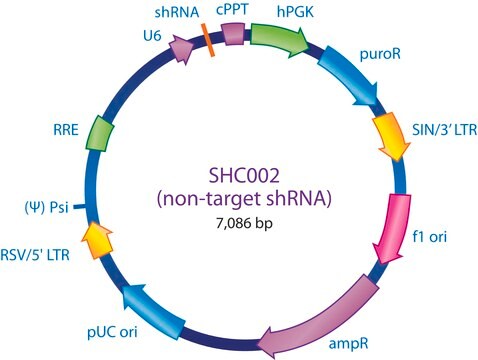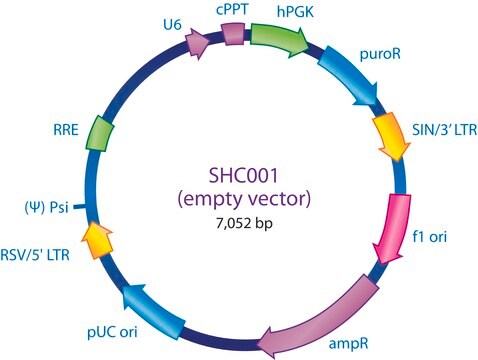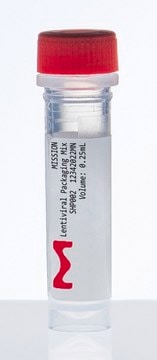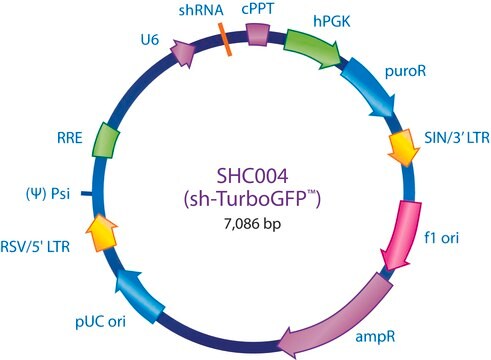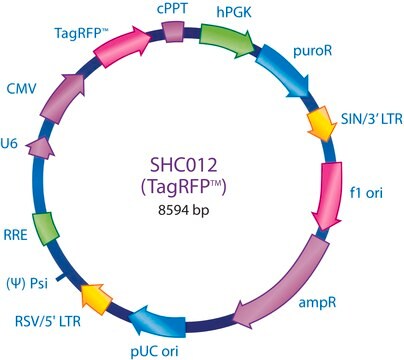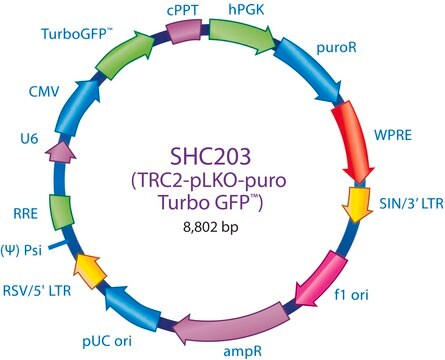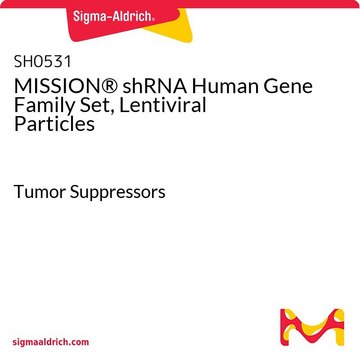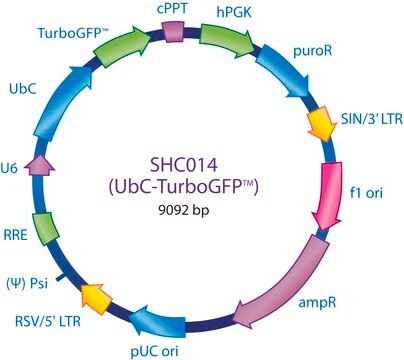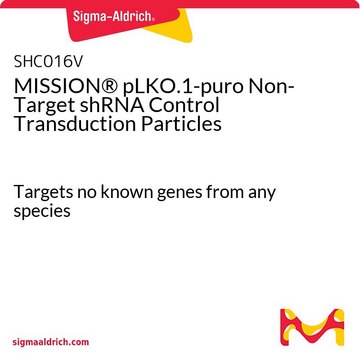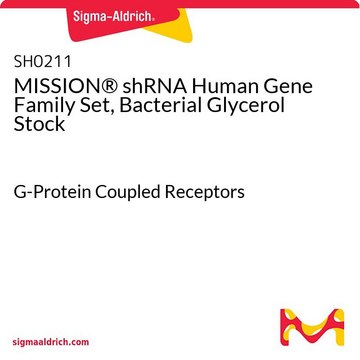SHC003V
MISSION® pLKO.1-puro-CMV-TurboGFP™ Positive Control Transduction Particles
Green fluorescent protein marker to monitor transduction efficiency
Synonym(e):
MISSION®, MISSION® TurboGFP™ Control Transduction Particles
About This Item
Empfohlene Produkte
Qualitätsniveau
100
200
Produktlinie
MISSION®
Konzentration
≥1x106 VP/ml (via p24 assay)
Methode(n)
capture ELISA: 106 TU/mL using p24
Versandbedingung
dry ice
Lagertemp.
−70°C
Suchen Sie nach ähnlichen Produkten? Aufrufen Leitfaden zum Produktvergleich
Verwandte Kategorien
Allgemeine Beschreibung
TurboGFP™ is an improved variant of the green fluorescent protein copGFP cloned from the copepoda Pontellina plumata. The TurboGFP™ transduction particles are produced from the sequence-verified lentiviral plasmid, pLKO.1-puro-CMV-TurboGFP™ (SHC003). It is a positive control to monitor transduction efficiency.
Self-inactivating replication incompetent viral particles are produced in packaging cells (HEK293T) by co-transfection with compatible packaging plasmids. In addition, the Control Transduction Particles are pseudotyped with an envelope G glycoprotein from Vesicular Stomatitis Virus (VSV-G), allowing transduction of a wide variety of mammalian cells. 200 μl of 106 TU/ml (via p24 titering assay) lentiviral particles are provided as frozen stock.
To see more application data, protocols, vector maps visit sigma.com/shrna.
Anwendung
Rechtliche Hinweise
Empfehlung
Lagerklassenschlüssel
12 - Non Combustible Liquids
WGK
WGK 3
Flammpunkt (°F)
Not applicable
Flammpunkt (°C)
Not applicable
Persönliche Schutzausrüstung
Eyeshields, Gloves, multi-purpose combination respirator cartridge (US)
Analysenzertifikate (COA)
Suchen Sie nach Analysenzertifikate (COA), indem Sie die Lot-/Chargennummer des Produkts eingeben. Lot- und Chargennummern sind auf dem Produktetikett hinter den Wörtern ‘Lot’ oder ‘Batch’ (Lot oder Charge) zu finden.
Besitzen Sie dieses Produkt bereits?
In der Dokumentenbibliothek finden Sie die Dokumentation zu den Produkten, die Sie kürzlich erworben haben.
Kunden haben sich ebenfalls angesehen
Artikel
Enhancing Lentiviral Transduction Efficiency
Unser Team von Wissenschaftlern verfügt über Erfahrung in allen Forschungsbereichen einschließlich Life Science, Materialwissenschaften, chemischer Synthese, Chromatographie, Analytik und vielen mehr..
Setzen Sie sich mit dem technischen Dienst in Verbindung.